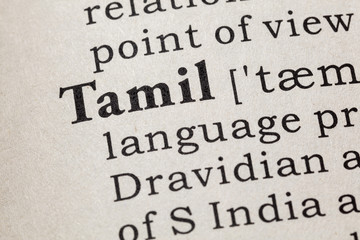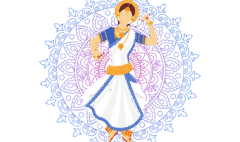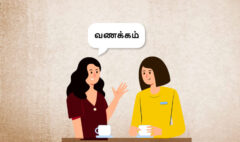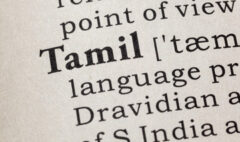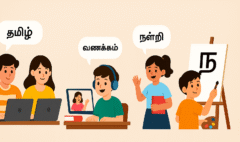An Introduction to Tamilian Political Parties and Leaders
An Introduction to Tamilian Political Parties and Leaders
The Crucible of Dravidian Politics: An Introduction to Tamil Nadu’s Major Political Parties and Leaders
To understand the modern identity of Tamil Nadu, one must understand its politics. The political landscape of the state is a unique and deeply fascinating world, a fiery crucible forged in the ideals of social justice, linguistic pride, and regional identity. It is a story that is inseparable from the history of the Dravidian Movement, a powerful social and political wave that reshaped the state’s identity in the 20th century. For the student of the Tamil language, engaging with the world of Tamil politics is an essential step towards a deeper level of cultural and social literacy. It is the key to understanding the headlines in the local newspapers, the passionate debates on television news channels, and the everyday conversations of the people. This guide will serve as a neutral and informative introduction to the major Tamil political parties and the iconic leaders of Tamil Nadu who have shaped their destinies. We will also explore some essential political vocabulary to help you better understand the current events in Tamil and the language used to discuss them.
The Bedrock: The Dravidian Movement and Its Legacy
Modern Tamil politics cannot be understood without first understanding the Dravidian Movement. This was a socio-political movement that emerged in the early 20th century, championed by leaders like E.V. Ramasamy (popularly known as “Periyar”). The movement’s core ideologies were rationalism, social reform (particularly the abolition of the caste system), anti-Brahmanism, and a fierce pride in the Tamil language and Dravidian identity, often positioning itself in opposition to what it saw as the political and cultural dominance of the Hindi-speaking north. It was this movement that gave birth to the two political behemoths that have dominated Tamil Nadu politics for over half a century: the DMK and the AIADMK.
The Dravida Munnetra Kazhagam (DMK) – திராவிட முன்னேற்றக் கழகம்
Translation: Dravidian Progress Federation
The Party and its Ideology: The DMK was founded in 1949 by C.N. Annadurai, who broke away from Periyar’s Dravidar Kazhagam. While it carried forward the core principles of the Dravidian Movement, Annadurai adapted them for electoral politics. The DMK’s ideology is centered on social justice, state autonomy, secularism, and the promotion of the Tamil language. The party’s steadfast opposition to the imposition of Hindi has been a cornerstone of its political identity and has deeply resonated with the people of the state. The DMK first came to power in 1967, a landmark event that marked the beginning of the era of Dravidian party rule in Tamil Nadu.
Iconic Leaders:
- C.N. Annadurai (அண்ணாதுரை): Fondly known as “Anna” (Elder Brother), he was the founder of the DMK and its first Chief Minister. He was a brilliant orator and writer, and he successfully translated the ideals of the Dravidian Movement into a powerful political force. His legacy is immense, and he is revered as a father figure of modern Tamil Nadu.
- M. Karunanidhi (கருணாநிதி): Known as “Kalaignar” (The Artist), Karunanidhi was a towering figure in Tamil politics for over five decades. He served as Chief Minister five times. A gifted screenwriter and author, he was the chief ideologue of the DMK after Annadurai’s death, and his powerful dialogues in films were a key tool for popularizing the party’s message. He led the party until his death in 2018.
- M.K. Stalin (மு. க. ஸ்டாலின்): The son of M. Karunanidhi, M.K. Stalin is the current President of the DMK and the incumbent Chief Minister of Tamil Nadu. He has risen through the party ranks over several decades, serving as the Mayor of Chennai and the Deputy Chief Minister before leading the party to victory in the 2021 state assembly elections.
The All India Anna Dravida Munnetra Kazhagam (AIADMK) – அனைத்திந்திய அண்ணா திராவிட முன்னேற்றக் கழகம்
Translation: All India Anna Dravidian Progress Federation
The Party and its Ideology: The AIADMK was founded in 1972 by the charismatic actor-turned-politician M.G. Ramachandran (MGR), who broke away from the DMK after a falling out with Karunanidhi. The party’s name explicitly invokes the legacy of C.N. Annadurai (“Anna”). While it shares the same broad Dravidian ideological roots as the DMK, the AIADMK’s political style has been heavily influenced by the populist appeal of its leaders. The party is known for its extensive social welfare schemes, often named after its leaders, which have a huge appeal among the rural and urban poor.
Iconic Leaders:
- M.G. Ramachandran (எம். ஜி. ராமச்சந்திரன்): Popularly known as “MGR” and “Puratchi Thalaivar” (Revolutionary Leader), he was one of the most beloved figures in Tamil history. His on-screen image as a champion of the poor and the downtrodden translated into an unprecedented political following. He served as Chief Minister for a decade until his death in 1987 and remains a cultural icon.
- J. Jayalalithaa (ஜெ. ஜெயலலிதா): A successful film actress who was MGR’s protégée, Jayalalithaa, known as “Amma” (Mother) and “Puratchi Thalaivi” (Revolutionary Leader-ess), became the undisputed leader of the AIADMK after MGR’s death. She was a formidable and often controversial politician who served as Chief Minister for six terms. She was known for her strong, centralized leadership and for a vast array of populist welfare schemes, such as the “Amma Canteens” which provide subsidized food. Her death in 2016 left a huge power vacuum in the party.
- Edappadi K. Palaniswami (எடப்பாடி க. பழனிசாமி) and O. Panneerselvam (ஓ. பன்னீர்செல்வம்): Following Jayalalithaa’s death, these two leaders have been the most prominent figures in the AIADMK, serving as Chief Ministers and holding key party positions.
Other Notable Political Parties
While the DMK and AIADMK are the two main poles of Tamil Nadu politics, several other parties play important roles.
- National Parties: The Indian National Congress (இந்திய தேசிய காங்கிரஸ்), which once dominated the state, and the Bharatiya Janata Party (பாரதிய ஜனதா கட்சி – BJP), the current ruling party at the national level, are also significant players, often forming alliances with the major Dravidian parties.
- Regional Parties: Parties like the Marumalarchi Dravida Munnetra Kazhagam (MDMK), the Desiya Murpokku Dravida Kazhagam (DMDK) founded by the actor Vijayakanth, and the Naam Tamilar Katchi (NTK) also have a presence in the political landscape.
Essential Political Vocabulary (அரசியல் சொல்லகராதி – Arasiyal Sollagaraadhi)
To understand the news and political discussions, you will need to know these key terms.
- Politics: அரசியல் (Arasiyal)
- Government: அரசாங்கம் (Arasaangam)
- Party: கட்சி (Katchi)
- Leader: தலைவர் (Thalaivar)
- Chief Minister: முதலமைச்சர் (Mudhalamaichchar)
- Election: தேர்தல் (Therdhal)
- Vote: வாக்கு (Vaakku)
- Victory: வெற்றி (Vetri)
- Defeat: தோல்வி (Tholvi)
- Alliance: கூட்டணி (Koottani)
- People: மக்கள் (Makkal)
- State: மாநிலம் (Maanilam)
- Assembly: சட்டமன்றம் (Sattamandram)
- Speech: பேச்சு (Pechu) / உரை (Urai)
* Announcement: அறிவிப்பு (Arivippu)
* Scheme / Plan: திட்டம் (Thittam)
* Corruption: ஊழல் (Oozhal)
* Protest: போராட்டம் (Poraattam)
Conclusion: The Language of Power and Identity
The politics of Tamil Nadu is a vibrant, complex, and deeply passionate affair. It is a world where cinema and politics are intertwined, and where the language itself is a central political issue. For the language learner, paying attention to the political discourse is a powerful, advanced form of immersion. It will challenge you with a formal and sophisticated vocabulary, and it will provide you with the essential context to understand the modern history and the contemporary concerns of the Tamil people. The next time you see a political rally on the news or a headline about the Chief Minister, you will not just see a political event; you will see the living legacy of the Dravidian Movement and the powerful role that the Tamil language plays in shaping the destiny of millions.

